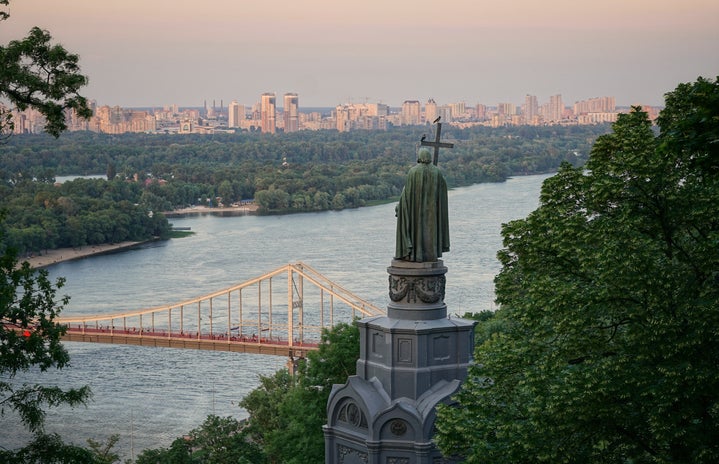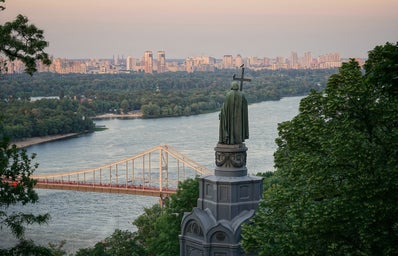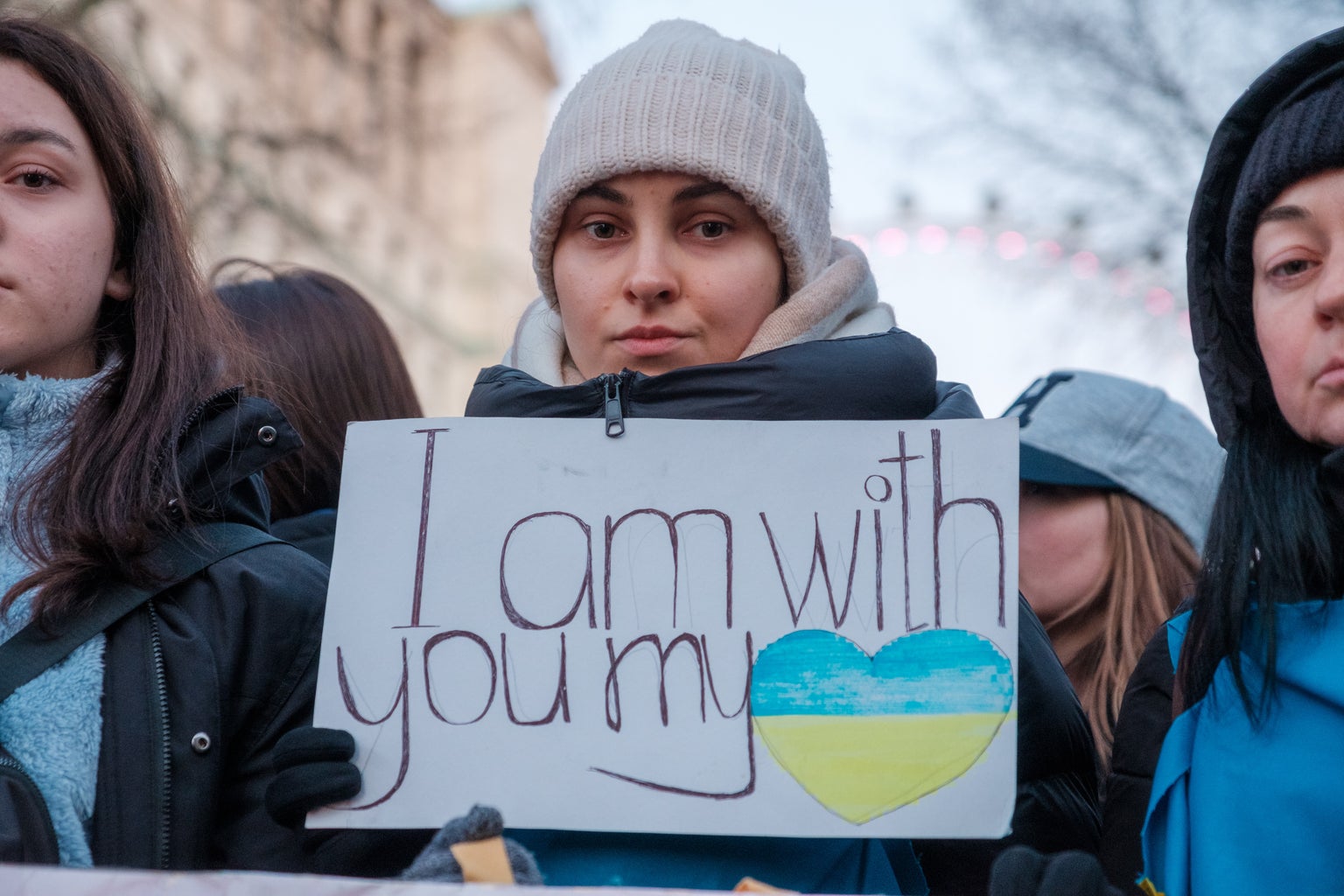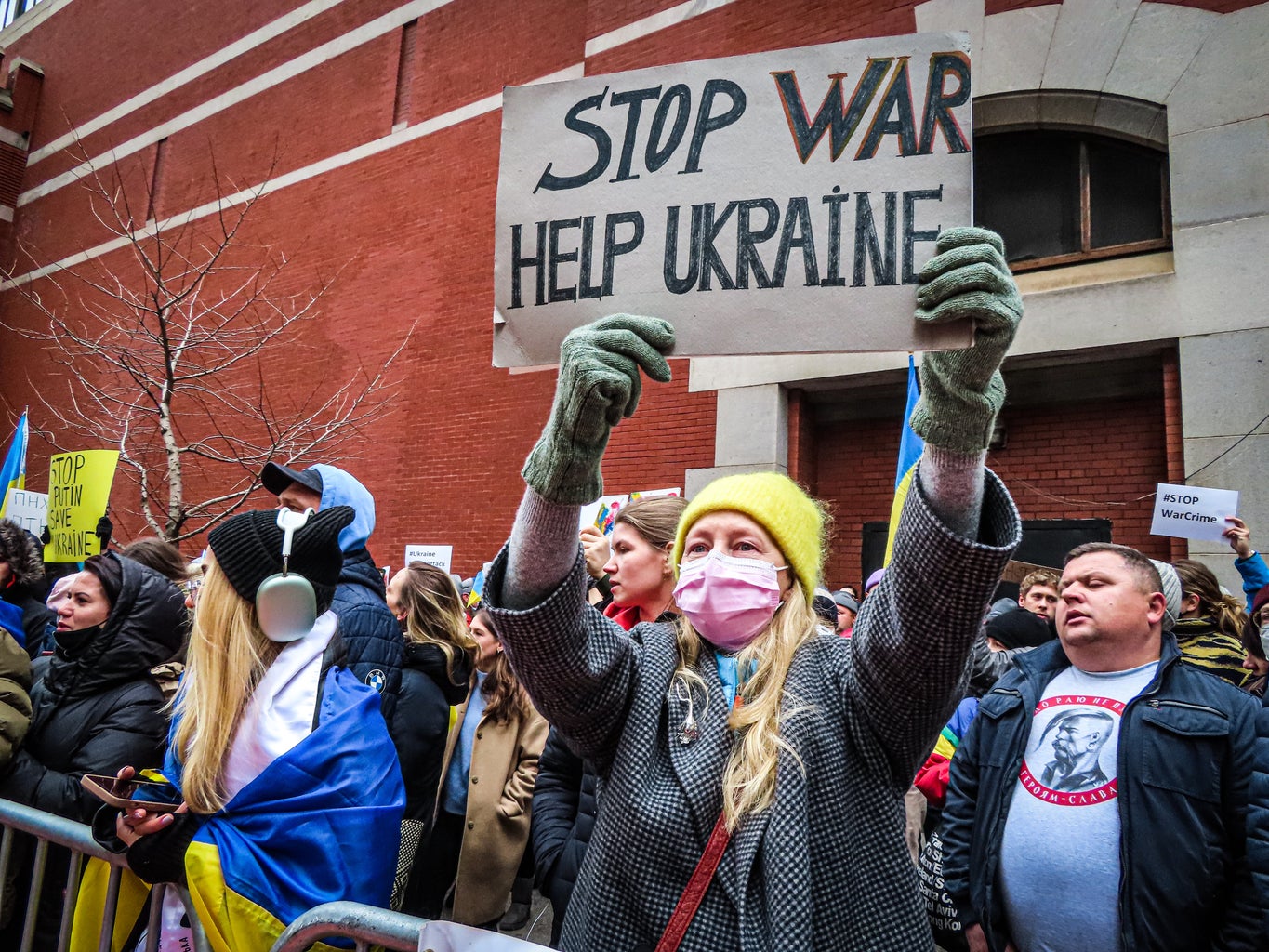“It’ll be our faces you see, not our backs.”
Ukrainian President Volodymyr Zelensky
The world is watching.
In the early morning of February 24, 2022, the first in a series of Russian missiles made landfall on Ukrainian soil. While the rest of the world watched from their television screens in horror, Ukrainians were introduced to a dystopian nightmare come true, watching familiar roads, family homes and cherished places become memories. Not only is Ukrainian society shaken to its core, but so is our international society, this being the largest land invasion in Europe since World War II.
Why is this happening?
With the fall of the Soviet Union in 1991, Ukraine declared its independence from Moscow. In turn, Ukraine became a sovereign state with its own elections, laws and institutions, no longer under the control of the fallen administration. This headliner conflict traces origins back to Ukrainian strides towards a democratic society, creating closer ties with the North Atlantic Treaty Organization (NATO) and the European Union (EU) and distancing itself from historical Russian ties. Russian President Vladimir Putin argues that modern Ukraine poses a threat to Russia’s safety, development and existence as talks of Ukraine securing membership in NATO continue. For Putin, NATO’s expansion is an encroachment on his quest to rebuild the Russian Empire’s global leadership, claiming that “Ukrainians are ‘one people’ with Russians, living in a failing state controlled by Western forces determined to divide and conquer the post-Soviet world.” However, many feel that this is a weak attempt at appropriating heritage for territorial gains. Putin has defended his actions by falsely claiming that the Ukrainian government is controlled by “Neo-Nazis,” perpetuating genocide against Russian political figures in the country.
What is happening now?
As of March 3, 2022, attacks of Russian troops have been reported on hospitals, schools and critical infrastructure in the southern and eastern regions of Ukraine, most of which are considered war crimes under the Geneva Conventions and their additional protocols. Russian forces have also captured vital strategic objectives, including the Chernobyl nuclear power plant while cities are currently struggling to provide adequate water and food supplies to their citizens. According to the United Nations refugee agency, more than one million Ukrainians have fled since the initial incursion, most reaching bordering countries.
On a global scale, Putin’s actions are largely condemned with the United Nations General Assembly voting overwhelmingly against the invasion. NATO allies and EU countries have implemented sanctions, excluded Russia from international payment networks, waived visa requirements for Ukrainian refugees, and provided the Ukrainian government with arms and weapons. However, many argue that these actions are simply not strong enough to convince Putin to pull back military forces. From international relations and law standpoint, many nations are hesitant to deploy troops across the threshold of the Ukrainian border in fear of prompting unprecedented actions of Putin’s command. Head-to-head, physical combat is reserved as a last resort in such situations. The only scenario in which NATO countries would face off directly with Russia is if Putin threatens any of the countries in the alliance, prompting collective defense under Article 5 of the North Atlantic Treaty. Currently, intelligence officials have theorized multiple ways this invasion could play out. However, no prediction can ever be one hundred percent certain.
What you can do to help.
Donate.
Whether you can pitch in $1 or $50, every donation adds to the greater whole. When deciding to donate to an organization, be sure to research its credibility through charity evaluator websites and tools. Some great options to consider are Direct Relief, Mercy Corps and International Medical Corps, all of which have already worked in Ukraine prior.
Stay informed.
In our globalized and interconnected world, it’s more important now than ever to stay informed about the current events taking place in our world to formulate our own opinions based on critical thinking skills to safeguard our neighbors around the globe. Ensure that you receive your information from accredited, unbiased sources to prevent the spread of dangerous misinformation, especially due to the rise of disinformation being deployed as a war effort today.
This dark moment in history is an aching wound that pains Ukraine and the continent of Europe and democracy as a whole. However, in the wake of these horrific events, the patriotism and vigor of the Ukrainian people continue to burn brightly in a world solemn with heavy hearts. The rallying cries of freedom fighters can be heard worldwide as the international community proudly holds a flaming torch in solidarity and in the name of justice. Truly, the glory and freedom of Ukraine have not yet perished.
Ще не вмерла України і слава, і воля.
“Glory and Freedom of Ukraine has not yet Perished.” – Ukranian National Anthem




